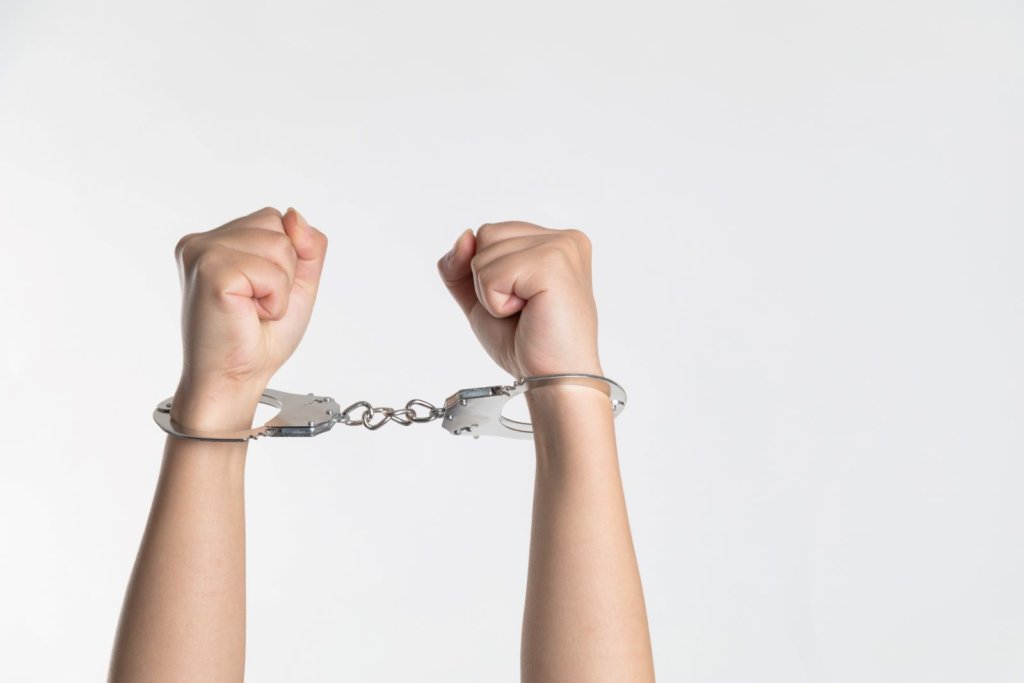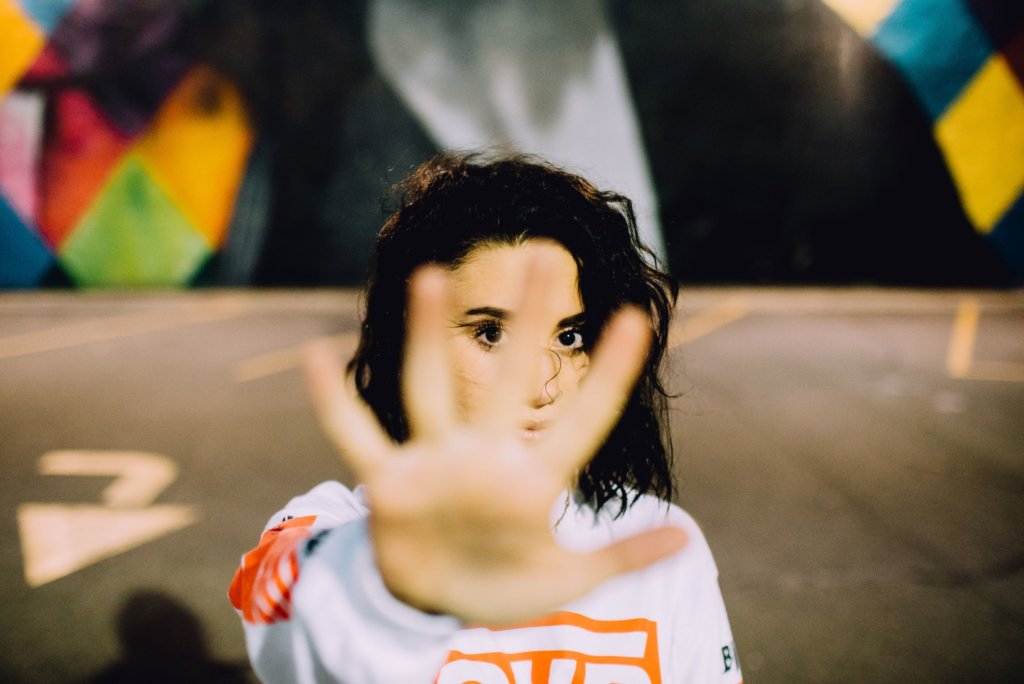I keep thinking about an essay I read in the book All I Really Need to Know I Learned in Kindergarten by Robert Fulghum. He writes about how he lived at the dead end of a dead-end street, two blocks long, at the bottom of a hill in north Seattle. At the top of the hill, two big yellow and black signs declared: STREET ENDS. And at the end of the street where Fulghum resided, another big sign with stripes and reflectors stated the obvious: DEAD END.
You could see that “DEAD END” sign a long way off – in other words, the dead end didn’t sneak up on you. However, what’s so remarkable is people drove down the street anyway and seemed to be baffled when the street did, in fact, end.
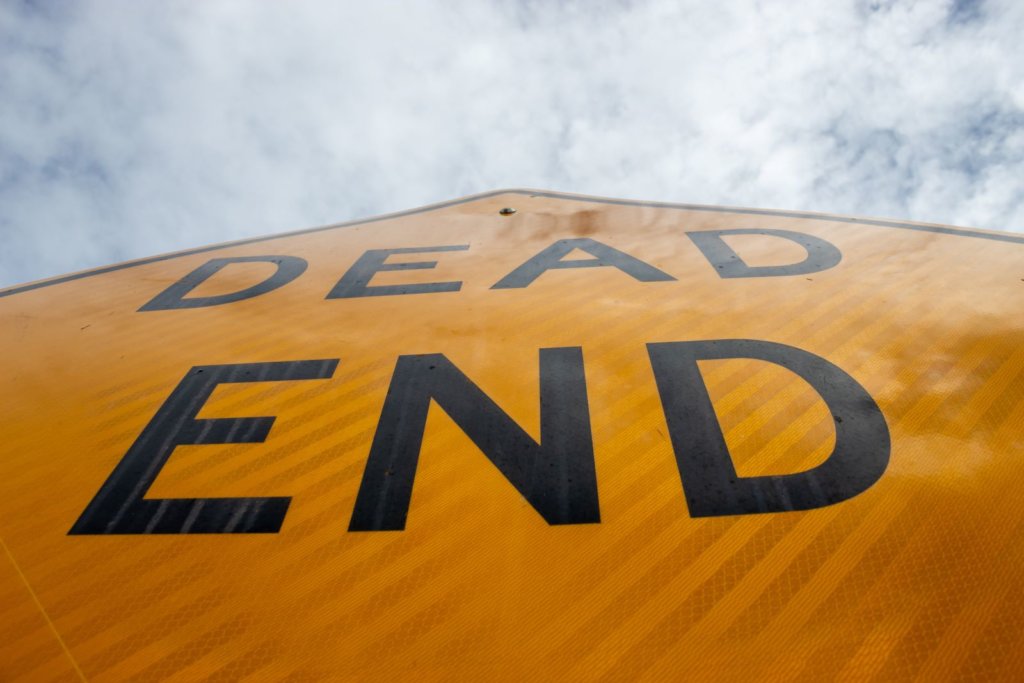
These signs are pretty obvious . . . if we accept them. Photo by Gabriel Soto on Unsplash
Fulghum writes:
“Not just part way, mind you. Not just to where the reality of the situation cleared up. No, sir. They drove all the way down, right up to the sign, the big black one with stripes, the one that said DEAD END.
“And they read that sign two or three times. As if they were foreigners and had to translate the English. They looked on either side of the sign to see if there was a way around it. Sometimes they sat there for two or three minutes adjusting their minds …. There was no pattern. All kinds of vehicles, all kinds of people, broad daylight and pitch dark. Even a police car a couple of times. And once a fire truck.
“Innate skepticism or innate stupidity? I confess I do not know. A psychiatrist friend tells me it’s a sample of an unconscious need to deny – that everyone wants the road or The Way to continue on instead of ending. So you drive as far as you can, even when you can clearly read the sign. You want to think you are exempt, that it doesn’t apply to you. But it does.”
His last two lines especially strike me. We want to think we are exempt, that whatever we’re confronting – a dead-end street, a deadly virus, whatever – doesn’t apply to us. But it does. I’d wager the majority of us want to feel special. We want to be right, to know the truth, and even when there’s evidence demonstrating we’re wrong, we can’t accept it. Why is that? I think one reason is U.S. culture doesn’t have many examples of people saying, “I don’t know.”
Instead of saying, “I don’t know,” we make something up, we pretend to know. We try to save face versus practicing humility and admitting, “I don’t know,” or even, “Maybe I’m wrong.” Who says maybe I’m wrong these days?!? I can’t remember the last time I heard in a public space someone open to the possibility they don’t know everything. It’s as if due to the internet and having so much knowledge at our fingertips we’re loathe to say, “I don’t know” or “I could be wrong.”
Also wrapped up in “I don’t know” is fear, in my opinion. My spiritual teacher says, “Humans do not fear to tread a known path, but they always hesitate and fear to travel unknown paths.” Sometimes those unknown paths are intellectual ones. It’s far easier to cling to a thought or belief you learned early on and is corroborated by friends and family than to change your mind and believe something new. I, for one, value bravery and I want other people to be brave too. I want us all to say “I don’t know” and “Maybe I’m wrong” when that’s the truth for us. And also, to pay attention to evidence when it stares at us in the face. We’d all be better for it.
I dream of a world where we recognize we aren’t exempt. A world where we understand if there’s a road sign that says “DEAD END,” that the street ends. A world we understand if we think we know something other people don’t, we’re likely deluding ourselves. A world where we’re OK with some uncertainty and we embrace the power of saying, “I don’t know” and “Maybe I’m wrong.”
Another world is not only possible, it’s probable.
I watched a viral video of a woman in California arguing why her kids shouldn’t be required to wear a mask to school. She told the school board they don’t have the authority to make that decision, and she cited the Declaration of Independence, the Constitution, and for some reason, the Federalist Papers.
My first response was to mock her, tell her what an idiot she is, why she’s wrong, etc. As we’ve seen though, fighting fire with fire only results in a conflagration. I kept mulling over the video and stumbled upon a passage from my spiritual teacher that softened me and offered some perspective on the situation. He said, “Everyone longs for liberation because bondage is not conducive to happiness …. all long for some kind of liberation – some in terms of freedom of action, some in terms of freedom on the intellectual level.”
We are all longing for liberation. We all want to escape from chains whether literal or metaphorical, and now when I think about the video, I start to wonder if maybe that’s what’s going on for this woman too. She doesn’t want someone else to tell her what to do or what her kids should do. She wants freedom but it’s coming out skewed. What I mean is, we as a society are brushing up against the confines of freedom in the physical and mental spheres. People want more and more freedom but the physical world imposes limits. You can’t have unlimited freedom on the earthly plane. You just can’t. But we still long for that so some people are taking that energy and ranting about wearing masks. I think what people are actually longing for is liberation from the bondage of being human.
According to my spiritual philosophy, every living being is on a journey from crudeness to subtlety. Every living being evolves over time to become more and more complex in all ways until finally that microcosmic entity becomes one with the macrocosmic entity. In other words, the source of all things. That’s what we’re all doing here. We’re constantly evolving physically, mentally, emotionally, and spiritually until one day we’re no longer even human. Watching this woman yell about freedom of choice, I now see her soul is yelling about a different sort of freedom. A thirst for freedom that will never be quenched on the physical plane and instead can only be satisfied on the spiritual one.
To quote my spiritual teacher again, he says, “There is in the living being a thirst for limitlessness. It is not possible for limited objects to quench one’s thirst. Brahma is the only limitless entity, and so establishment in Brahma’s bearing alone puts an end to all thirsts or cravings …. [A]nd so knowingly or unknowingly, human beings are indeed running after limitlessness.”
All of this is to say, I hear you, anti-mask lady. I hear your desire for freedom, for limitlessness, for no longer being ensnared by various bondages. I long for the same things and that’s why I have a devoted spiritual practice because I know what I really, really, really want cannot be found on Earth. And what you really, really, really want can’t either.
I dream of a world where we recognize the physical realm has its limits. A world where we understand our thirst for freedom can never be satisfied here, and instead, we turn to a spiritual practice to quench it. A world where we understand ultimately what we’re all longing for is liberation.
Another world is not only possible, it’s probable.
A few days ago, I visited Mount Rainier National Park for the first time with my parents. Doing so, now I understand the hype about the Pacific Northwest in the summer. It was gorgeous – the mountain views, the lakes, the wildflowers. It took my breath away (sometimes literally as I huffed and puffed up the mountain).
I noticed as we drove back to Seattle where my parents live, I felt sad and a little disgusted. We went from mountains in the distance to skyscrapers. We traded in wildflowers dotting the landscape to shopping malls. After so much beauty, my nervous system started reeling and I wanted to make civilization and cars “bad” or “wrong” while trees and wildflowers were “good” or “right.” Except, how does that serve me?
I know these days our society is all about polarization as well as black and white thinking. You’re either right or you’re wrong. You’re either sane or delusional. We keep speaking in absolutes but that’s not reality. Reality is nuanced. You can be a little bit right and a little bit wrong. In the case of civilization being “wrong,” civilization also spells amenities like schools, hospitals, and libraries. Those are good things. And in the case of Mount Rainier being “right,” living there also means being buried under snow from about mid-October to mid-May. That doesn’t sound so great. Nowhere is a utopia. Nowhere is perfect.
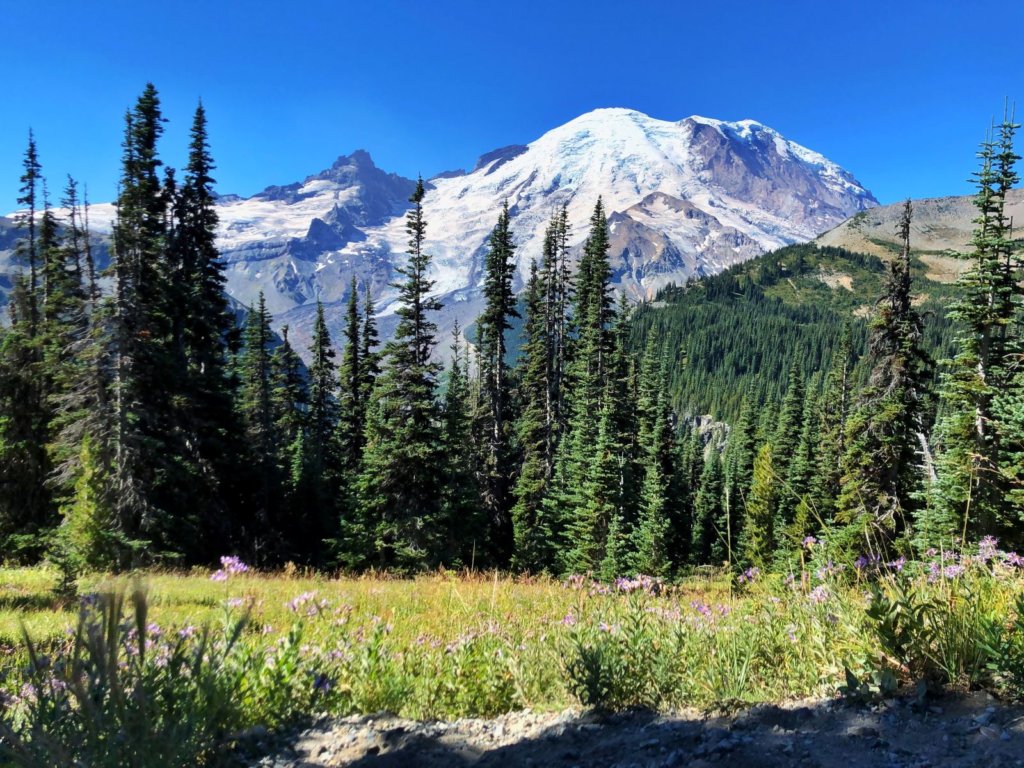
I mean honestly. Look at this! Photo by Gabriel Phipps on Unsplash
Instead of labeling one thing as good and another thing as bad, I think about a practice that’s touted in my spiritual philosophy: madhuvidyá. Madhuvidyá literally means “honey knowledge” and requires seeing everything, EVERYTHING, as an expression of an infinite loving consciousness, also known as Brahma. That means trash on the street, cigarette butts, and yes, even people who do terrible things, are an expression of Brahma. As you can imagine, this practice is HARD.
However, my spiritual teacher says, “If you properly follow madhuvidyá you can keep yourself aloof from the shackles of actions even though you perform actions. This madhuvidyá will pervade your exterior and interior with … [ecstasy] and will permanently alleviate all your afflictions. Then the ferocious jaws of [degeneration] cannot come and devour you. The glory of one and only one benign entity will shine forth to you from one and all objects.”
The practice of madhuvidyá also creates peace, in my experience. It creates acceptance that yes, even this thing I don’t like or perhaps even hate is an expression of an infinite loving consciousness. Practicing madhuvidyá means I’m able to see beyond the surface of people, places, and things to witness their true form. I’m able to recognize everything is Brahma, Cosmic Consciousness, Source, the Universe, whatever name you have for it. And just as the name madhuvidyá suggests, that makes life sweeter.
I dream of a world where we understand everything is a little bit good and everything is a little bit bad. A world where we recognize even things we find distasteful are also an expression of an infinite loving consciousness. A world where we do our best to practice madhuvidyá and see things as they really are.
Another world is not only possible, it’s probable.
I watched an EFT (emotional freedom technique) video about digestion and the practitioner said people with digestive issues have trouble letting go. They have issues digesting and processing life. That’s me. I’m emotional, sensitive, and cling to the past. (I bet other people with water moons in their astrological charts know what I’m talking about.)
It’s especially hard for me to let go of relationships, all relationships. I remember people as they were and they sort of crystalize in my mind so if they’re different people in the present, I experience cognitive dissonance. I get confused as to why we’re not interacting the way we used to. I don’t understand why our relationship has a different rhythm, or even no rhythm at all. I’ll give the person chance after chance to return to who they were, to be like who I remembered, but they don’t. As much as we trot out the expression, “People don’t change,” that’s not true. People change all the time. It’s impossible to move through life unaffected and we all shed old versions of ourselves to become new people. Myself included. Except I also take with me worn out relics like tattered pieces of luggage.
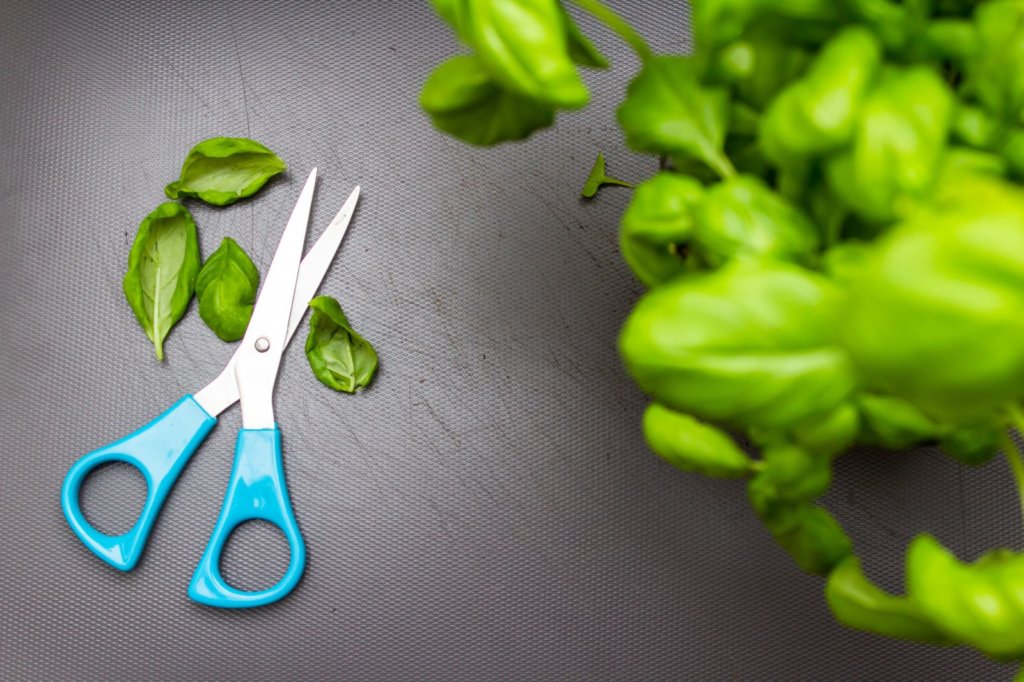
This picture makes sense if you focus on the headline and also keep reading. Photo by Louis Hansel on Unsplash
I think I do this because when I love, I love deeply and it’s hard for me to let that love go. It’s hard for me to recognize some of the people I love don’t exist anymore, that our relationship is well and truly dead for whatever reason. But just because the relationship is dead doesn’t mean it didn’t matter. On the contrary, it mattered a great deal as I write about in my yet-unpublished novel. The main character is talking about romantic love here but for me the sentiment applies to every sort of love. I’ve changed the wording a bit so it fits in with this blogpost:
“She expected falling in love to feel like a bomb – explosive, undeniable, irrevocably changing everything. Instead, falling in love was more like a leaky bathroom faucet, the slow and steady drip of water eventually wearing away the porcelain until it left an indelible mark. For better or for worse, the person now had a permanent space just for them.”
Sometimes that permanent space is like a scar, a reminder of what was, and other times that permanent space is like an internal organ, active and functioning. I often long for the scars to turn into organs but they very rarely do.
I opened this post talking about letting go and that’s what I’m doing here. I’m acknowledging most scars remain scars and longing for what was doesn’t serve anyone. Who I am in the present moment deserves to spend time with other people that I get along with as they are now, currently. It’s like pruning a plant – you have to prune some plants in order to make way for more robust growth. It turns out people are the same way.
I dream of a world where we’re able to let go of old relationships and the dreams we had for those relationships. A world where we understand everyone we love has a permanent space in our psyches but sometimes that space is a scar. A world where we recognize not only do plants need pruning, but people do too.
Another world is not only possible, it’s probable.
On Saturday at 2 a.m. my power went out because a car ran into a utility pole, which affected not only me, but approximately 900 other people. The power wasn’t restored until about 2 a.m. on Sunday morning and that meant all my plans for Saturday – doing laundry, roasting vegetables, heck, even blending a smoothie – were scuppered. What I had planned didn’t matter anymore because circumstances wouldn’t allow for it. I’m sharing this because not only was my Saturday unexpected, but my whole week. All week I ran into one mishap and miscommunication after another.
Life is like that sometimes. After all, that’s why we have the joke, “How do you make God laugh? Tell him your plans.” How often does life turn out how we intended? Not only the broad picture, but also the day to day? And how do you react when things don’t go your way? I’m doing my best to handle changes with grace and aplomb instead of throwing a fit like a small child (even though a part of me also wants to throw a fit). I feel my feelings, but I also give in to the moment.
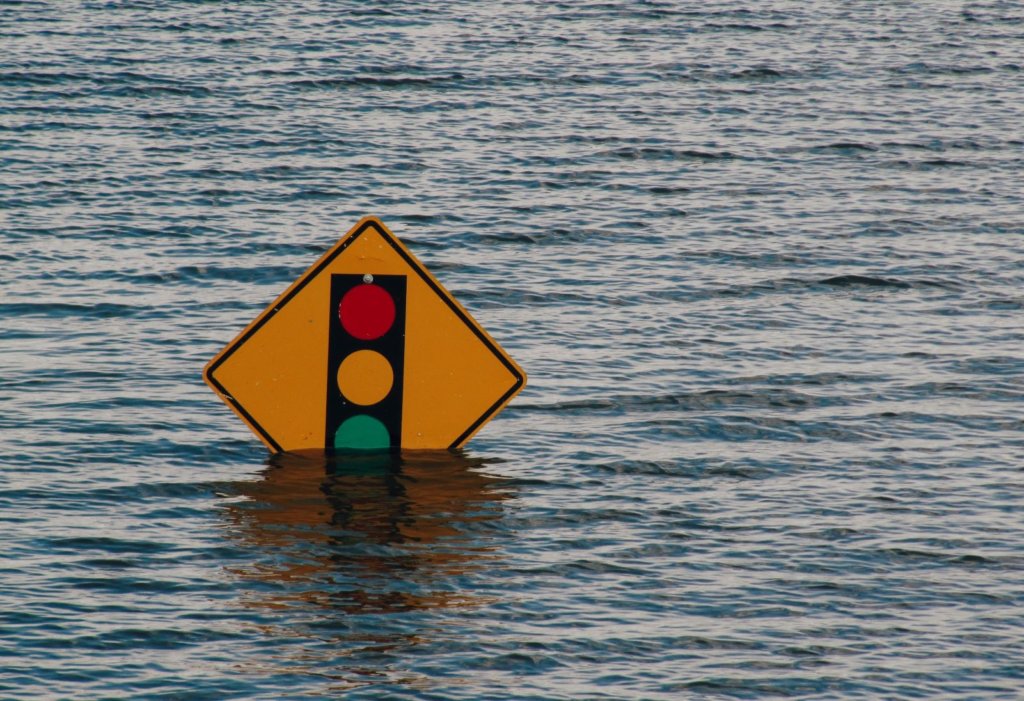
This picture will make sense as you keep reading. Photo by Kelly Sikkema on Unsplash
For instance, on Saturday, I could have worked around the lack of electricity by going to a friend’s house with laundry in tow and vegetables in hand. I could have kept my Saturday plans more or less but instead I surrendered to the day, meaning I didn’t fight the power outage. I gave into it by napping and using my gas stove to cook other things.
My experience this week relates to my last post on moving with trust because when life throws me a curveball, it doesn’t have to unnerve me and instead I can adapt. I can’t help but think the universe is training me, working out my adaptability muscle, because as I look around, adaptability seems to be the order of the day. A city in China received nearly a year’s worth of rain in just three days, displacing around one million people. Also this month, Germany experienced severe flooding, and in the U.S., the Bootleg fire in Oregon is creating its own weather.
Marcus Kauffman, a spokesman for the state forestry department, said in the NY Times, “The fire is so large and generating so much energy and extreme heat that it’s changing the weather. Normally the weather predicts what the fire will do. In this case, the fire is predicting what the weather will do.”
The weather is changing, our climate is changing, and we human beings must also change. We must adapt to reality and accept the degree of chaos and uncertainty that comes with being alive at this moment, otherwise we’re in trouble. Part of the adaptability is preparing for what could be coming. In my case, I have a solar power bank to charge my cellphone and other small devices so I didn’t worry about my cellphone dying, nor did I have to scramble for a public outlet. I also have a solar-powered light cube and candles so I didn’t brush my teeth in the dark.
Do you have things like that? Are you prepared for an earthquake, fire, flood, tornado, or blizzard? Depending on where you live, one or more of those things will happen. Natural disasters are no longer rare events and instead becoming commonplace. Record-breaking storms, fires, etc. are happening every year. Each year we’re beating a new record in a bad way. It’s scary and uncomfortable but it’s also reality. And we can either fight reality, curse our circumstances, or we can adapt and prepare. In doing so, we might find we are more flexible than we realized.
I dream of a world where we practice adaptability. A world where we expect the expected. A world where we prepare for what’s ahead because we know it’s coming sooner or later. A world where we understand the world is changing and so must we.
Another world is not only possible, it’s probable.
I read a Rumi quote the other day that struck me: “Move, but don’t move the way fear makes you move.” Wow. What a statement. So often I’ve moved in exactly that way. I’ve let fear motivate me and have made decisions from a fear-based state. I’m not judging myself for it – it makes sense because fear is like an alarm bell and I was doing whatever I could to turn it off. Historically, that’s meant spinning out and acting compulsively. I’d apply for a million jobs on LinkedIn even if I wasn’t interested in them just because I was freaked out and worried about money. Or I’d move from one place to the next because where I was living felt intolerable and I couldn’t stand being there for another minute.
But moving the way fear makes me move so often put me out of the frying pan and into the fire. In other words, my fear-based decisions didn’t improve my situations and sometimes made them worse. For instance, years ago the fabulous cottage I escaped to turned out to be not so fabulous because it lacked any insulation. Making decisions out of fear doesn’t really work out for me. Instead, I’m learning to move the way trust makes me move. What sort of decisions do I make believing things will work out? That the universe has my back? How do I behave if I honestly believe whatever needs to come will come and whatever needs to go will go?
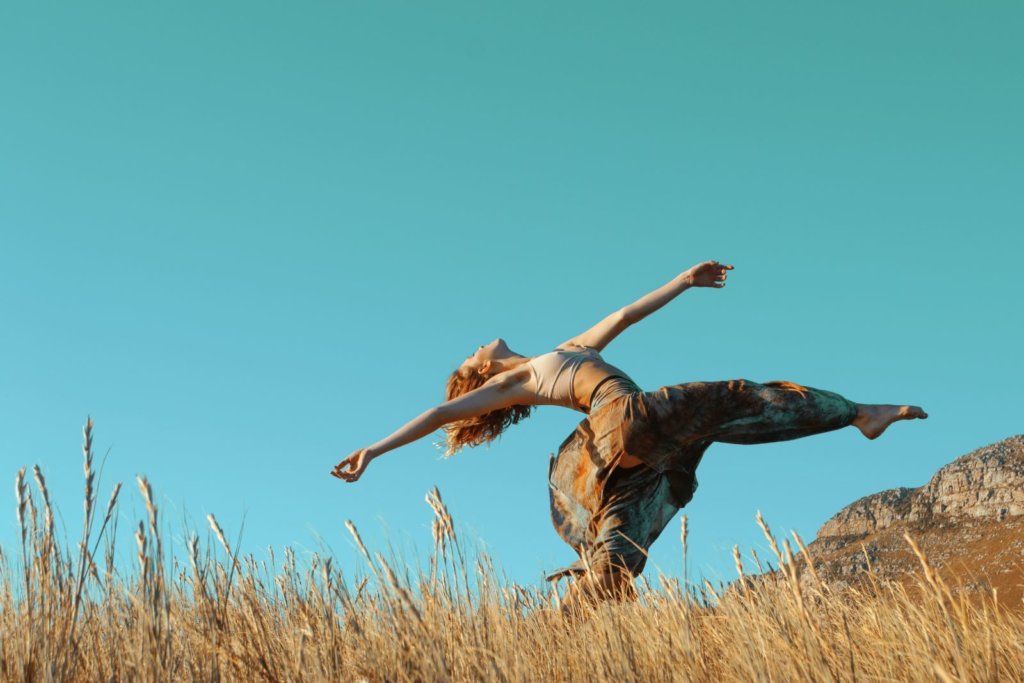
Wow. What a picture, right? Photo by Craig Chitima on Unsplash
From that place I find I’m more thoughtful, considerate, and curious. I believe in the magic and the mystery of the universe and know beautiful things can come out of the blue. I know I’ll receive a random email or telephone call from someone looking for my ghostwriting or content writing services. I know I’ll find the random object I’m looking for, such as Play-Doh, on the side of the street for free. In that place I feel curious what the future holds and I trust what’s meant for me will show up.
Tosha Silver writes in her book Outrageous Openness if you think of the Divine as your ultimate protection and your Source for everything, “Then the Universe can use anything it wishes to meet your needs. You’re no longer limited to what your conditioned mind thinks is possible.” She has countless stories of this happening in her life and in the lives of others. For instance, she found an apartment through a hairdresser and someone else found a literary agent by bowling them over in a yoga class. Fear leads us to believe we have to force things; we have to make them happen. Trust shows us we can relax and be shown the next steps on our path. In other words, trust shows us how to move differently.
I dream of a world where we relax and breathe. A world where we understand what’s ours is ours and will show up at the perfect time in the perfect way. A world where instead of moving from a place of fear, we move from a place of trust.
Another world is not only possible, it’s probable.
The other week I turned in an essay for a competition and I felt vaguely guilty about it because none of the ideas were mine. Don’t get me wrong, I didn’t pass the ideas off as mine – I cited all my sources and I put quote marks around passages that someone else had written – but still. I felt like a plagiarist because I couldn’t take ownership for what I was presenting. I didn’t write about my personal experience; I wrote about ideas.
When I mentioned this to a friend, she reminded me 1.) That’s what you do in essays and 2.) There’s that saying, “There’s no such thing as an original idea. Every idea worth having has been had thousands of times already.”
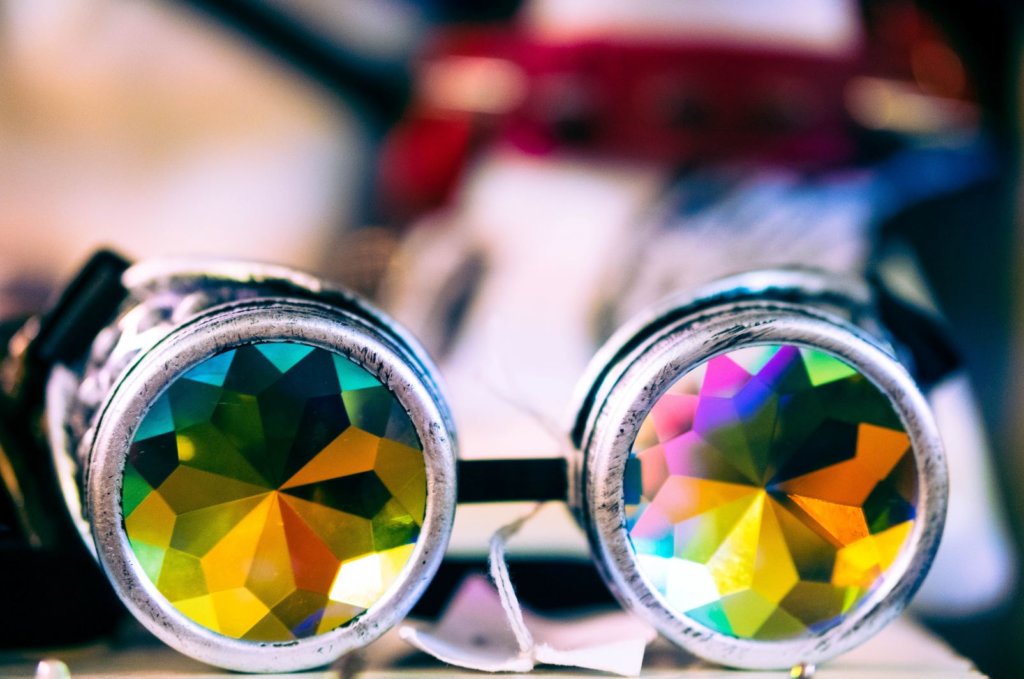
Photo by Malcolm Lightbody on Unsplash
I’m not sure I fully agree with the quote because some ideas are truly original. After all, somebody had to experiment with putting together peanut butter, pickles, and sriracha sauce to learn it’s a great combo. And at the same time, I know we’re all putting our own spin on things. It reminds me of this quote by Mark Twain who said:
“There is no such thing as a new idea. It is impossible. We simply take a lot of old ideas and put them into a sort of mental kaleidoscope. We give them a turn and they make new and curious combinations. We keep on turning and making new combinations indefinitely; but they are the same old pieces of colored glass that have been in use through all the ages.”
We’re all using the same pieces of colored glass but forming new combinations with them. That’s also in alignment with my spiritual philosophy. We say (metaphorically) God is like the moon and each of us are like mirrors, reflecting the moon. We all have the same original image, but how it shows up on each mirror is different. Some mirrors are speckled or cracked. Some mirrors are cloudy or clear. The originality, the origin, if you will, is the moon, but the way the moon is reflected in the mirror is unique.
Going back to my essay, the ideas I chose, how I formulated them, and also my writing style were all unique. That’s what I can take ownership over. My part. The kaleidoscope. But nothing else. And truthfully, maybe I can’t even take ownership over those things. My spiritual practice is one where I try to see God in everything – me, what I’m creating, what I’m using to create, the people who see the creation, etc. It’s hard because I’m a person and want to feel like something is mine. I want to point to things and say, “I did that” or “That belongs to me.” And it’s true while also false.
The falsehood becomes evident when I start tracing back to my origins. When I ask, “Who gave me this mind? This body?” then it becomes clear who or what everything really belongs to. Where does that leave me? I’m simply a kaleidoscope, making new combinations from pieces of colored glass that aren’t mine to begin with.
I dream of a world where we acknowledge both our uniqueness and our commonality. A world where we understand what belongs to us and what doesn’t. A world where we realize we are all reflecting the same thing, but the way the reflection appears is unique. A world where we acknowledge our role as kaleidoscopes.
Another world is not only possible, it’s probable.
I realize Juneteenth has come and gone but I keep thinking about an article I read by Robin Washington where he said Juneteenth has been whitewashed. The tale we’ve been told is Union soldiers arrived in Galveston, Texas, on June 19, 1865 to inform enslaved African Americans they were free. As if they didn’t already know. However, historian Gregory P. Downs has firsthand accounts from people demonstrating they did know. Galveston’s Blacks knew they were free and so did their slaveholders, who nonetheless kept them in bondage using brute force.
That means General Gordon Granger didn’t read off from a scroll and let slaves know they were liberated. No, Granger and his soldiers let the slaveholders know the slaves were liberated – at the barrel of a gun. They used force to say, “Let these people go.”
One of the reasons this article has stuck with me is because it illustrates what motivates people to change. So often I think we as a society want to believe that if people only knew the truth, they would change out of the goodness of their hearts. If people only knew that by purchasing products made with palm oil, such as shampoo, cookies, peanut butter, microwave dinners, and more, they are contributing to the extinction of orangutans, they’d stop. (Side note: Palm oil has many names like “stearic acid” and “sodium lauryl sulphate” so it could be hiding in your products and you wouldn’t know.) And it’s true that sometimes informing people does move them enough to change their behavior.
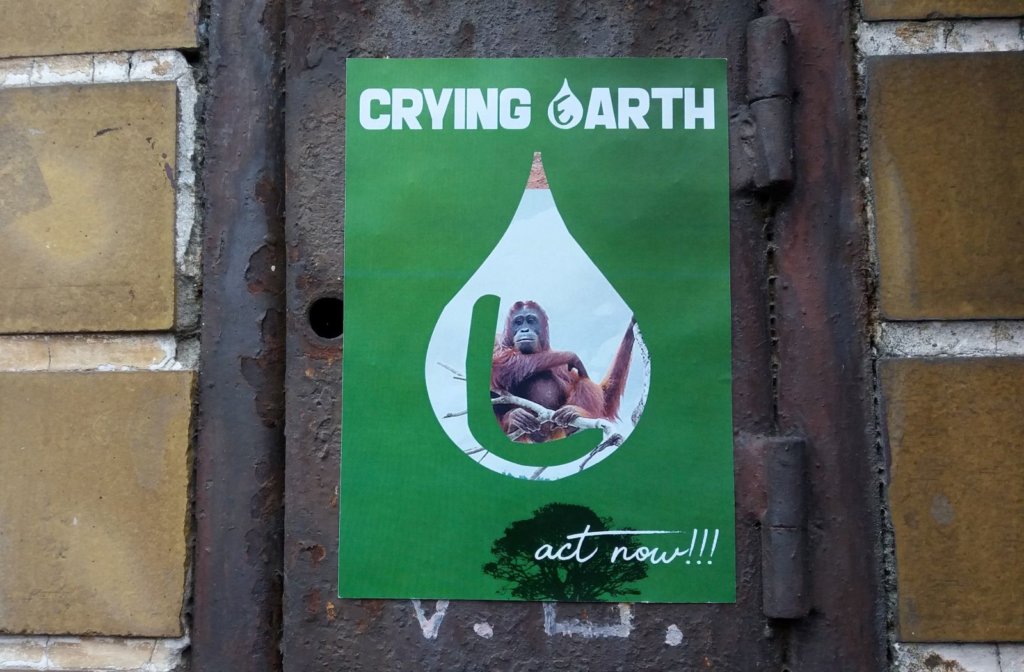
Will you help the orangutans? Photo by Marija Zaric on Unsplash
For instance, a friend of mine became vegan after watching a couple of documentaries. Up until that point, she didn’t put it together cows are raped and separated from their young in order to produce milk. She didn’t think about how cows, pigs, and chickens have personalities and consciousness like her dog does. She didn’t know the animals she ate screamed out in pain as they were slaughtered. But when she learned more, she changed her eating habits. However, not everyone is like my friend.
Some people know the truth and are still unwilling to change because it’s too hard, too complicated, too whatever. Some people, like the Civil War era Galveston slaveholders, will maintain the status quo until someone else forces them to change.
I think that’s why my spiritual teacher is not a pacifist. He says, “In all actions of life whether small or big, the unit mind progresses by winning over the opposing trends. Life develops through the medium of force.” Later on, he says, “In the absence of the ability to resist evil and also in the absence of an effort to acquire such ability, declaring oneself to be nonviolent with the purpose of not admitting all these weaknesses before the opponent may serve a political end, but it will not protect the sanctity of righteousness.”
My spiritual teacher cares about protecting the sanctity of righteousness, about making life better for everyone, and so do I. Does that happen sometimes through petitions, boycotts, and protests? Yes, absolutely. But sometimes that also happens at the barrel of a gun and I think it’s important for us to recognize that. I’m not encouraging everyone to go out and buy a gun, rather I’m saying force has its place in the world, if it’s used wisely and used for the benefit of all.
I dream of a world where we understand what motivates people to change. A world where we recognize sometimes learning the truth is not enough. A world where we realize force has its place in society and sometimes it’s necessary to employ force in order to create a world we wish to see.
Another world is not only possible, it’s probable.
June 21 and 22 are Amazon Prime days so I wanted to take a minute to talk about the reality of this company and capitalism in general.
Earlier this month, the New York Times came out with an article titled “The Amazon Customers Don’t See.” It’s quite long so I won’t detail the intricacies of the article but instead highlight a few aspects. First off, Amazon measures the time each employee spends off task at its warehouses, meaning every bathroom break is accounted for. If a person spends too long in the bathroom, they can be, and have been, fired.
One employee wrote on the internal feedback board, “It is very important that area managers understand that associates are more than just numbers. We are human beings. We are not tools used to make their daily/weekly goals and rates.”
However, Amazon warehouse employees are not treated like human beings, which is reflected in the company’s turnover rates. From July to October 2020 alone, Amazon hired 350,000 new workers, which is more than the population of St. Louis. Many recruits were hired through computer screening with little conversation or vetting. They only lasted a few days or weeks. Amazon’s turnover rate is roughly 150% a year, which is almost double that of the retail and logistics industries, according to the Times.

I urge you not to support this company. Photo by Christian Wiediger on Unsplash
Some more numbers for you: In 2019, the company hired more than 770,000 hourly workers, even though Amazon, including corporate staff, grew by just 150,000 that year. That means the equivalent of Amazon’s entire work force, roughly 650,000 people at the start of the year, left and were replaced that year. If Amazon is churning through its entire work force once or twice a year, it would need to have eight, nine, 10 million people apply each year, which is about 5% of the entire American work force. Five percent of the ENTIRE American work force.
The high turnover is built in to Amazon’s bones as Jeff Bezos said he didn’t want hourly workers to stick around for long because he viewed a large, disgruntled work force as a threat. Yeah, because then they might start asking for stuff like higher pay. . .
Also, let’s talk about racism. Black associates were almost 50% more likely to be fired than their White peers. In Amazon’s warehouse, more than 60% are Black or Latino whereas more than 70% of managers are White or Asian. So not only is Amazon burning through workers, it’s also perpetuating racism within its ranks.
Amazon is a prime (ha!) example of capitalism at its worst. Not only is Amazon exploitative, it plays to the worst part of our humanity – our desire for convenience no matter the cost. Bezos said people are inherently lazy and our nature as humans is to expend as little energy as possible to get what we want or need. He’s right, which is why Amazon sales exploded during the pandemic and the company continues to grow.
But again, I ask, what price are we paying for this convenience? We’re destroying the planet and treating people like machines. We’re supporting a company that appeals to our basest instincts and perpetuates what many are so actively fighting to change, i.e., racism. If you care about small businesses, workers’ rights, human rights, or the planet, you cannot actively support Amazon. And look, I know there are some products only Amazon sells – a “perfect” boycott is likely unachievable, but can you buy less from them? Even a little less? I know it’s inconvenient, but perhaps the price is worth it.
I dream of a world where we support our fellow human beings. A world where we demand people are treated with the respect and care they deserve. A world where we put our money where our mouths are when it comes to our values. A world where we understand sometimes the price of convenience is too high to pay.
Another world is not only possible, it’s probable.
